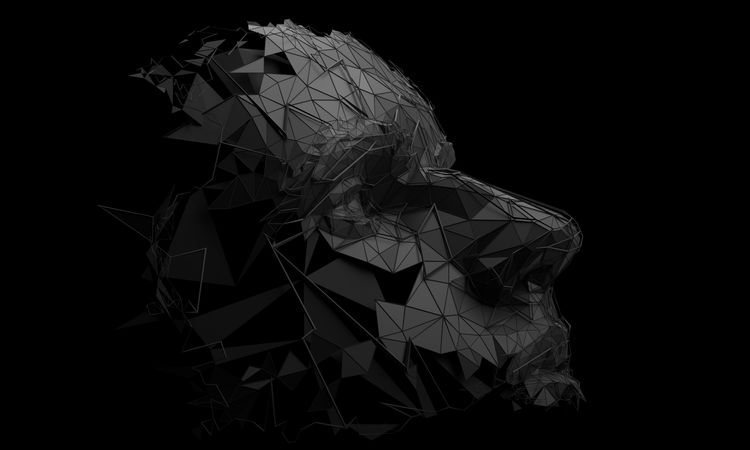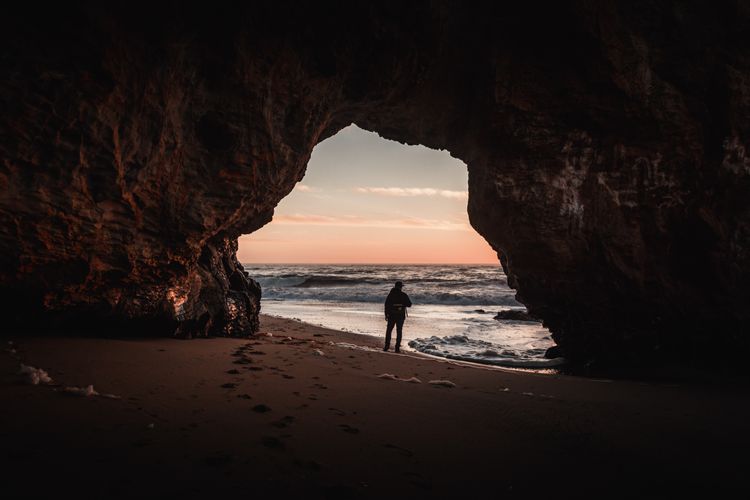How to Understand the Private Struggle of a Conspiracy Theorist

A conspiracy theorist was once a person who lurked on the fringes of society. But now it appears they've broken into the mainstream.
One day, someone you know, maybe a dear friend, may come to you with an odd idea. They’ll start talking about the shape of the planet, or who’s really in control, or what’s being hidden from you.
They’ll seem alarmed. They’ll have bags under their eyes. And they’ll be speaking like they’ve discovered absolute truth. The question is, how do you respond?
You need to understand the reality they’ve put themselves in, and how painful it is to be in their position. If we’re going to understand each other, we need to start understanding the phenomenon of becoming paranoid.
The Psychology of a Conspiracy Theorist
“I’ve seen footage. I stay ‘noided.” — Death Grips
A conspiracy theory is a belief that powerful individuals are working together to achieve a malicious aim.
If you want to look at this phenomenon in an evolutionary way, being paranoid that an enemy tribe might be plotting to attack your tribe could have been advantageous.
An explanation I like better is that negative childhood experiences create individuals with a reduced capacity to trust.
If your primary caretakers failed to raise you, then naturally, you would be less trusting. This could color your perception of any type of authority or governing body.
It’s as if a conspiracy theorist looks at institutions and thinks to themselves, “I know what you’re really like. You can’t fool me.”
When a conspiracy-minded person sees something disturbing, like a video on the internet, it activates their paranoia. And if they’re always online, the paranoia never has to stop. Every bit of information starts to confirm their fear, and then they start to drown.
The Suffering of a Conspiracy Theorist
The people I’ve known who thought like this were not frizzy-haired social pariahs with bloodshot eyes. They were intelligent, competent, and otherwise rational people. They were just too curious for their own good.
Let me paint a picture of how this happens. I’ll do it in steps:
- You take an interest in some real-world issue. Maybe you want to understand history, or how institutions function. Out of genuine curiosity, you look into it.
- You start learning things. You discover obscure forums. You read strange documents. You follow unsafe links.
- The things you learn are starting to scare you. And the more scared you get, the harder it is to look away. You feel like the veil has been lifted. You start making matrix pill analogies.
- What you’ve learned becomes a significant part of your life. Most of your waking hours are now spent worrying about the powers that be. How fucked up can the world get? You start losing sleep.
- You go to talk to someone you love. You realize how vast the gulf is between your understanding of the world and theirs. You desperately try to tell them that something horrible is going on, and they just can’t see it. They start looking at you differently.
- You realize that with every bit of information you took in, you inched further and further away from the people around you. Your immediate reality is fear and pain, and other people can’t get why.
No one can comfort you because now they only see your wild beliefs. You’ve joined the crazies.
And you become utterly, and brutally, alone.
I know what a conspiracy theorist can become. I know that conspiracy theories can be disgusting and that they can lead to chaos, violence, and death.
But those are actions. Beliefs don’t necessarily lead to actions. The only thing that can save a person like this before it gets to that point, is listening.
Sympathy for the Devil
Many of us have experienced some form of conspiracy thinking just by spending time on the internet. Depending on your news source, you can have a radically different perception of the world than the person sitting next to you.
We can’t assume that someone with a different opinion than us is crazy. But what if they really do seem too far gone?
Well, it’s been proven that even Neo Nazism — one of the most extreme ideologies there is — can be swayed with empathy. No joke. Look up Christian Piccolini.
And it’s also important to address the type of person who couldn’t be further from a conspiracy theorist. A person who trusts every institution. A person who discourages skepticism in one area, but encourages it in another.
This Psychiatry Online article states that conspiracy theorists should learn to be skeptical and think critically:
We can help our patients to counter this all-too-human tendency by encouraging their capacity for critical thinking and skepticism. As a society, our survival depends on it.
This is weird because conspiracy theorists are already extremely skeptical of EVERYTHING. Just not in a way that’s palatable to whoever wrote this article.
Asking questions about things should be encouraged. Moreover, conspiracy theorists rest their assumptions on a very important truth. The truth is that not everyone has good intentions.
You should question people in power. Authority should be checked and scrutinized. And, yes, people shouldn’t be censored.
We All Believe Something
Most conspiracy theories are probably just fantasies. But here’s a short list of things that are real:
- Organized crime
- Corruption
- Cults
- Totalitarian regimes
- Propaganda and psychological manipulation
- Psychopaths and narcissists
- Lying
If a conspiracy theorist sees everything as corrupt and malicious, then nine times out of ten, they will be wrong. But, there will always be that one time they aren't.
If someone in your life believes something odd, and they try to tell you about it, don’t reject them. I’m not saying you have to believe them, but hear them out. And remember that they could be profoundly afraid to even talk about it with you.
Denying them the basic dignity of being heard will drive them further into shame, isolation, and insanity. Empathy leads to trust, and trust is the only way to convince anyone of anything.
And who knows? Maybe they’ll open your mind.



